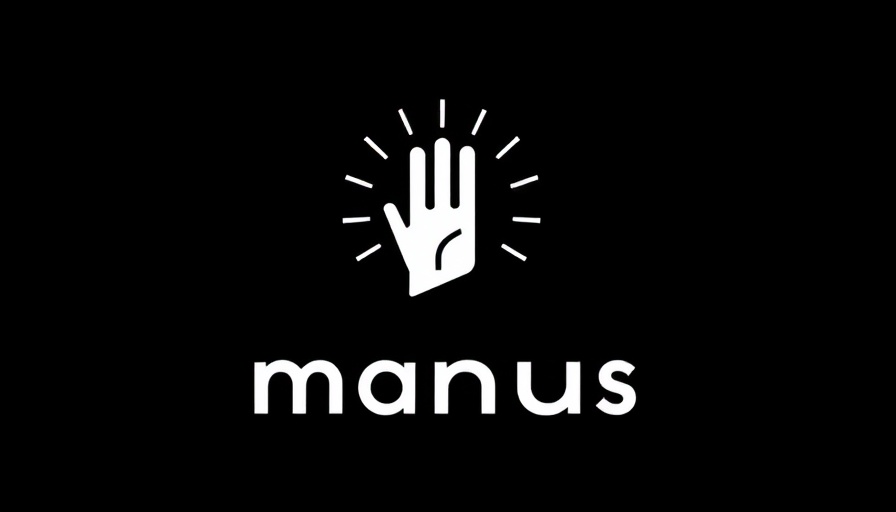
Introducing Manus: A Revolutionary AI Agent
In the rapidly-evolving world of artificial intelligence, a new entrant, Manus, is catching the attention of tech enthusiasts and industry experts alike. Developed by the Chinese startup Monica, Manus transcends conventional AI capabilities by functioning as a 'general agent' that can handle complex tasks ranging from travel planning to financial analysis autonomously. Leveraging the powerful Claude AI and open-source technologies, Manus demonstrates a unique approach to task execution that could redefine workflows across various sectors.
The Multi-Agent System: Understanding Manus' Architecture
At the core of Manus' functionality is a multi-agent system. According to chief researcher Yichao "Peak" Ji, users primarily interact with the executor agent, which channels commands to various other components like the knowledge and planner agents. This design choice ensures that the executor remains focused on immediate tasks without being overwhelmed by the comprehensive knowledge these other agents possess. Ji emphasizes that while Manus utilizes various distinct models—currently relying on Claude 3.5 Sonnet v1—future enhancements are expected with the testing of Sonnet 3.7.
Open-Source Foundations: The Secret Behind Manus' Development
One of the most noteworthy aspects of Manus is its deep reliance on open-source technologies. Ji remarked that without open-source, the development of Manus would not have been possible. The team at Monica plans to release multiple enhancements to Manus as open-source tools in the near future, which could further bolster collaborative innovations in AI.
Real-World Applications: What Can Manus Do?
The real power of Manus lies in its ability to turn natural language directives into actionable outcomes. In a demonstration, when prompted to analyze Tesla stock, Manus swiftly generated an interactive dashboard that outlined key insights. This is not merely a chatbot answering questions; it’s a tool that directly executes tasks through web interfaces. Users can experience a seamless workflow, where vague instructions are transformed into detailed reports or actionable plans in real-time.
Comparison with Western Counterparts: The Next Big Leap?
Manus is drawing comparisons to significant AI systems developed in the West, particularly OpenAI's 'Deep Research' feature designed to produce comprehensive reports efficiently. However, unlike traditional systems that merely suggest or guide, Manus executes commands, potentially outperforming its rivals on specific benchmarks. Early testers have reported fast processing times, likening the experience to having an adept collaborator managing tasks.
Challenges and Limitations: Risks of AI Agents
Despite its promising capabilities, Manus faces scrutiny regarding its performance and reliability. Some initial demonstrations displayed limitations—like inaccuracies in travel itineraries or slow processing speeds. Concerns also arise about the potential for AI agents to be manipulated, exposing users to risks, especially when such agents can access sensitive personal data. The community is cautious, echoing the sentiments expressed by security researchers regarding the need for strict regulations around AI systems.
Looking Ahead: The Future of Manus and AI Innovation
As Manus develops and matures, its performance could signal a significant transformation in how AI integrates into workflows. Its emphasis on open-source development may pave the way for future enhancements and innovations. In a competitive landscape marked by rapid advancements, such as OpenAI's new multi-agent frameworks and Google's browser agents, Manus could potentially lead to new standards in AI capabilities.
While the tech community remains skeptical about the feasibility of achieving true artificial general intelligence soon, the advancements represented by Manus and other emerging players signal exciting times ahead in the AI domain. With continuous enhancements and user feedback, Manus may soon solidify its place as a contender among top AI technologies.
Join the Conversation: Share Your Thoughts
What are your ideas about AI agents like Manus? Do you believe they can replace traditional workflows in various industries? Share your insights on social media and join the discussion around the future possibilities of AI!
 Add Row
Add Row  Add
Add 




 Add Row
Add Row  Add
Add 

Write A Comment